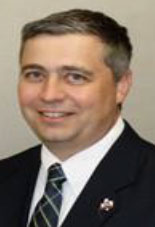|
Texas A&M Cotton Breeder Dr. Steve Hague
College Station, Texas, USA
March 25, 2013
Source: Texas A&M Plant Breeding Bulletin, March 2013
 Steve Hague joined the faculty as an Assistant Professor in 2006 with a 70% appointment in Plant Breeding, cotton, and a 30% appointment in teaching. In 2008, Steve was asked to take on additional breeding activities in oilseed crops, essentially from the perspective as potential bioenergy crops for Texas. While the preponderance of his breeding activities remains in cotton, he devotes time to evaluating and breeding castor, sunflower, and guayule. Steve Hague joined the faculty as an Assistant Professor in 2006 with a 70% appointment in Plant Breeding, cotton, and a 30% appointment in teaching. In 2008, Steve was asked to take on additional breeding activities in oilseed crops, essentially from the perspective as potential bioenergy crops for Texas. While the preponderance of his breeding activities remains in cotton, he devotes time to evaluating and breeding castor, sunflower, and guayule.
Dr. Hague’s cotton breeding program is focused on developing high-yielding germplasm with enhanced drought tolerance. Steve has developed a number of germplasm pools through the use of interspecific hybridization between Gossypium hirsutum (upland) and G. barbadense biotype Sea Island and through a series of complex crosses of elite parents from publically available germplasm and germplasm developed by Texas A&M AgriLife Research. Major emphasis is placed on identifying segregating progeny with specific yield components, drought resistance, and fiber traits. Steve devotes considerable time to the study and identification of drought resistance in cotton. He uses indices that include comparisons of yield, vegetative growth, and fiber
properties under drought stress and non-drought stress.
Steve collaborates with a number of other scientists, including Dr. Keerti Rathore in the transfer of Keerti’s glandless-seed-glanded-plant trait, i.e., no gossypol in the seed but foliage contains normal gossypol. He has collaborative work with Greg Sword, Michael Brewer, and Allen Knutson in Entomology investigating resistance to the cotton fleahopper.
Dr. Hague contributes to the teaching program in plant breeding and the Department of Soil and Crop Sciences by leading SCSC 304, our undergraduate Plant Breeding and Genetics course that is taken by many of our undergraduate students. This class explores basic genetic principles and plant breeding practices such as biotechnology, phenotypic selection methods, and the seed industry in general. Steve will develop and deliver a new course in International Cropping Systems beginning in 2013/14 that will address the challenges and opportunities in international agronomy, and he leads a Production Agronomy Experiences’ course that introduces students to the support industries of agronomy and includes a weekend tour of agriculture in the Mississippi River Delta. Steve has developed study abroad courses to CIMMYT in Mexico and to Australia. He is also serving on an Undergraduate Studies committee to develop internship guidelines for all TAMU undergraduate students.
One last aspect of Steve’s devotion to undergraduate education in Soil and Crop Sciences is that he has been co-sponsor and is now sponsor of the Texas A&M University’s undergraduate Agronomy Society and is the American Society of Agronomy’s National Advisor for the Students of Agronomy, Soils, and Environmental Science (SASES).
At the graduate level, Steve has mentored four graduate students to completion: Greg Berger currently is an Assistant Professor with the University of Arkansas Agricultural Experiment Station, Jenny Clement works for CSIRO in Australia, Rosa Jauregui is a soybean breeder with Monsanto in Argentina, and Neha Kothari is a post doc with Dr. Jane Dever. He currently advises one Ph.D. candidate who is a Cotton Incorporated Graduate Fellow and two M.S. candidates.
More news from: Texas A&M AgriLife
Website: http://agrilife.org/ Published: March 25, 2013 |